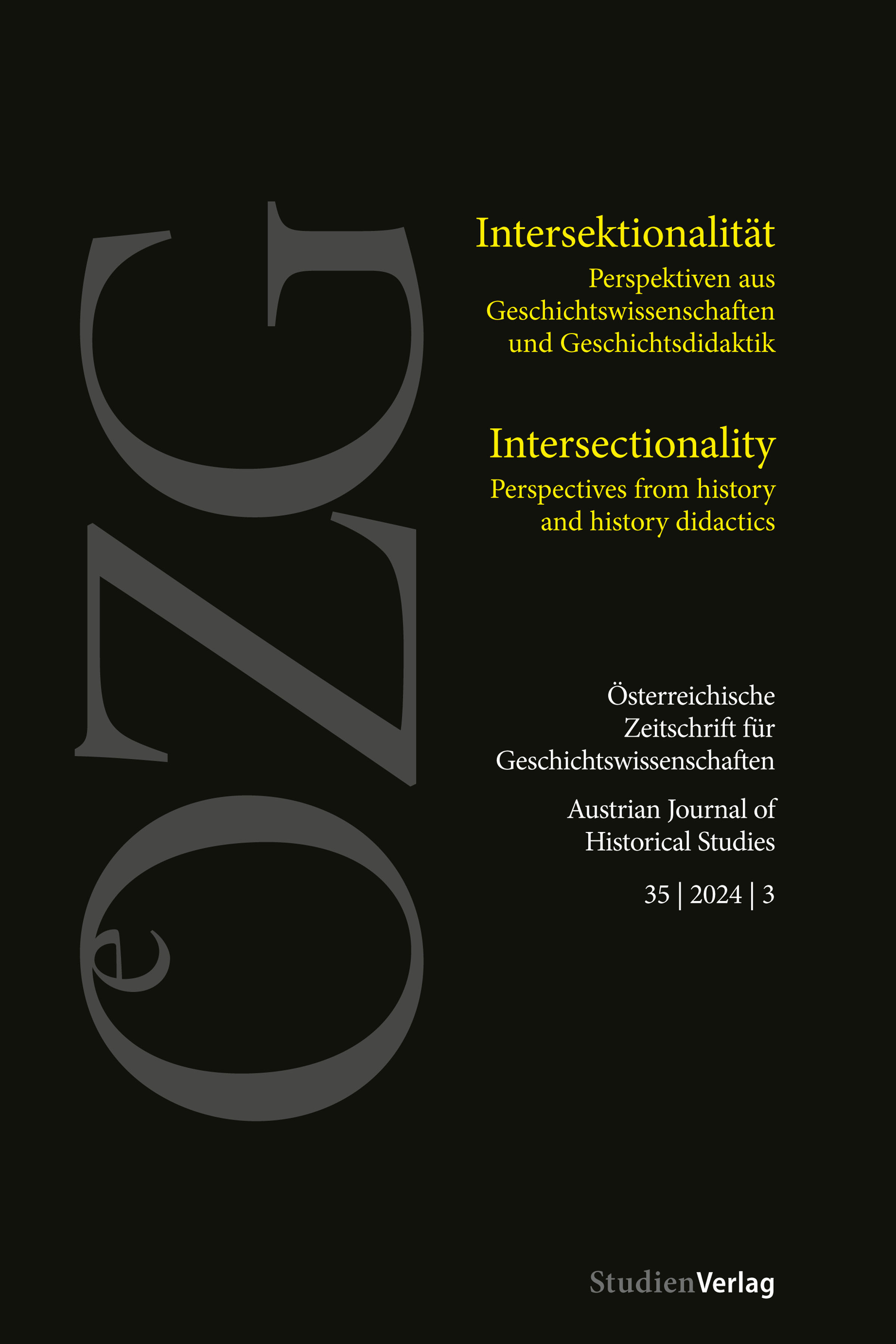Unheard-of Educational Biographies 1812–1869
Why a Semi-Participatory Method and Experiential Knowledge are Needed in Intersectional Dis/ability History
DOI:
https://doi.org/10.25365/oezg-2024-35-3-7Keywords:
partial participation, disability, intersectionalityAbstract
This paper calls for new historical methods to study disability from an intersectional historical perspective. The Linz “Institute for the Deaf and Dumb” serves as a case study with two nineteenth-century micro-biographies and a new semi-participative method involving the deaf community. The article aims to show to what extent the experiential knowledge of those affected can add value to the interpretation of disability history. The experiential knowledge is collected through a semi-participatory process. The procedure and the theoretical background are described and applied in the article.
Downloads
Published
How to Cite
Issue
Section
License
Copyright (c) 2024 Austrian Journal of Historical Studies

This work is licensed under a Creative Commons Attribution 4.0 International License.


